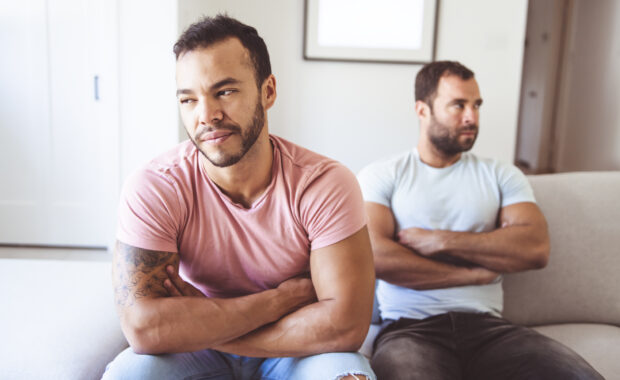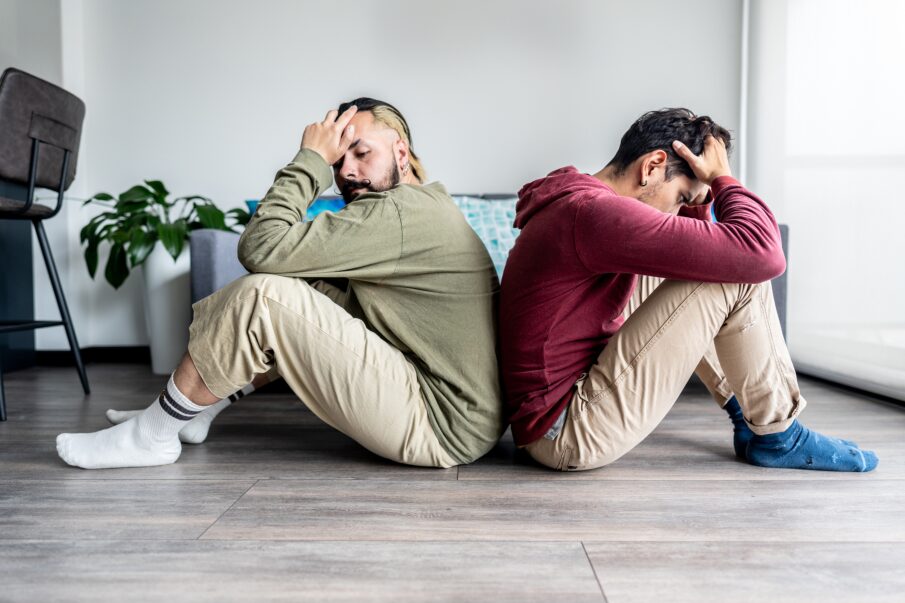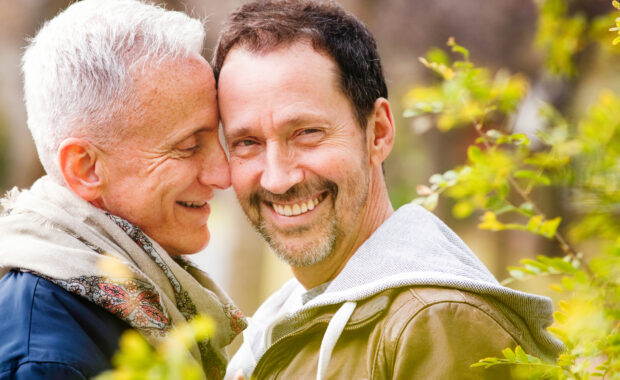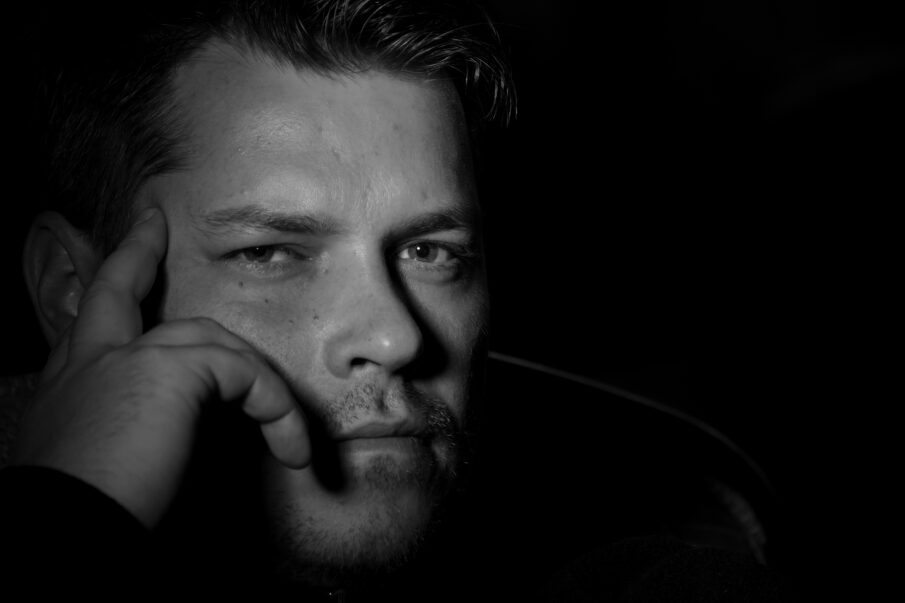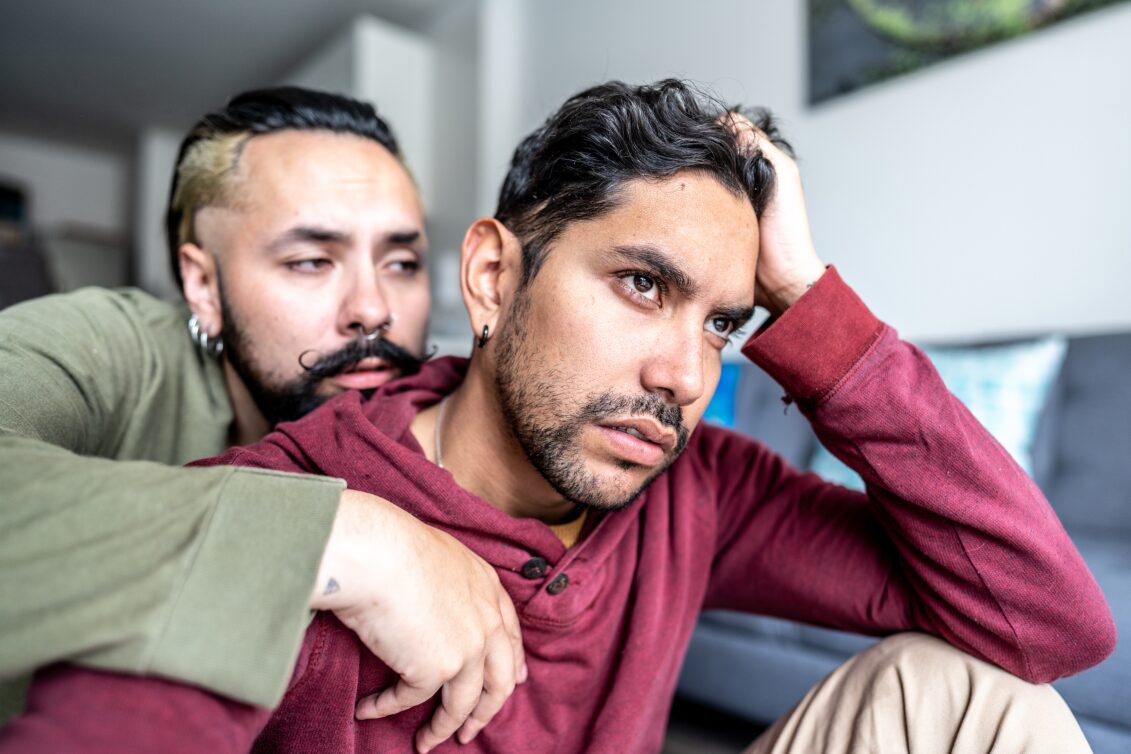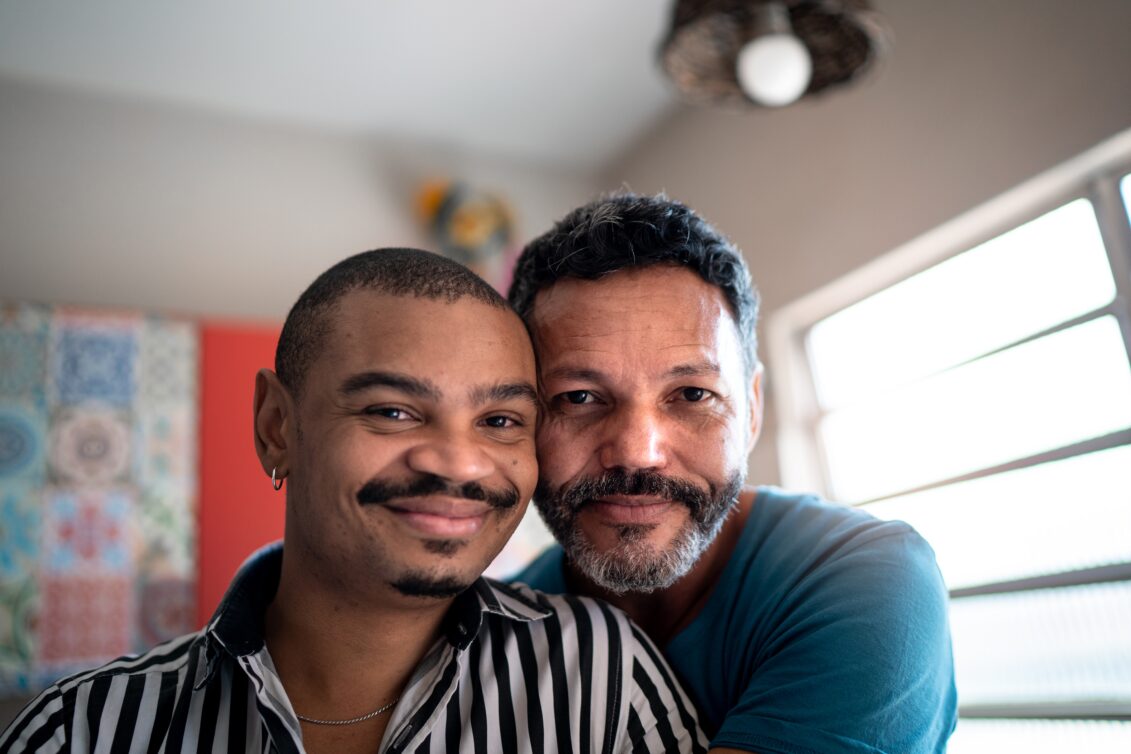Are couples looking to relationship counselling as a last resort, hoping the Counsellor will fix the relationship? Many couples put off coming along to relationship counselling as it seems time-consuming and costly, and they don’t see how speaking about their relationship difficulties with someone else is helpful. Some couples get stuck and entrenched in old behaviour patterns, and conversations go around in circles. It can be upsetting to admit your relationship isn’t working, and embarrassing having to be vulnerable in front of a professional. The good news is that relationship counselling can help. The not-so-good news is that it requires work and a commitment to engage in the not-so-good stuff that’s happening between you.
Cheating and Gay Male Relationships: how does cheating impact gay relationships?
Have you experienced Cheating or infidelity in your relationship? Has your partner cheated on you, or have you cheated on them? Maybe you are suspicious that something is going on. Then, you are not alone. In a survey in the United Kingdom of 1000 gay men, 58% of them said their partner had cheated on them, 51% reported they had cheated on their partner and had suspicions that something was going on outside the relationship.
Once infidelity or Cheating occurs in a relationship, the impact can be devastating. Couples often ask in counselling, “Is it possible for a relationship to survive and move forward when cheating happens?”
Gay Men and Building Meaningful Relationships
Despite today’s advancements, gay men are still struggling to find meaningful relationships. Relationships are challenging and require ongoing navigation through life’s ups and downs. Building lasting relationships for most people is one of the ongoing challenges; however, for gay men, having a mutually respectful and loving relationship is complex.
With the achievements of gay liberation movements along with the decriminalisation of homosexuality, the AIDS epidemic, the legalisation of gay men’s rights, today’s same-sex marriage, discrimination legislation and a wider acceptance, then what stops some gay men from having meaningful and lasting relationships.
The Hidden Grief of Men: Loving all the Parts of the Self
Men learn to hide parts of themselves, the correlation between those early experiences of shame is linked to the development of self-reproach and internalised homophobia.
From early boyhood, young gay men learn to hide who they are in fear of being bullied, harassed and made fun of. It’s just as prevalent for men who identify as bisexual, queer, are married, and are same-sex attracted. With the realisation of being different from the crowd, most gay men learn to hide those parts of themselves as unacceptable. Gay men learn to retreat into themselves, to hide parts of their identity from others.
How to Stay Connected in a Throuple Relationship
Coming together as a throuple can be an exciting time for any relationship. If you are considering moving from an established dyad relationship by introducing a third person or beginning a new throuple relationship, here are some pointers you may want to consider
The most common configuration of a throuple is when an established relationship invites a third person to join them. These vary from couple to couple; however, most couples report falling in love with a third person as the dominant reason.
Bullying and its Impact on Gay Men: Taking Back Control
For anyone who has an experience of being bullied, there are potential long standing consequences that follow into adulthood. Despite the advances towards inclusion and acceptance of LGBTQI+ people in the wider society, bullying remains an ongoing problem. It is not unusual for clients who come to therapy, as individuals or as a couple, to have experienced bullying in one form or another. Bullying discriminates against those who are different and in young men at school any deviation from the heteronormative culture, become a target and open to discrimination.
Straight Men and Pegging
More and more identified cis-straight men are taking pleasure in a type of anal sex that is taboo in many relationships. Pegging has been around for a considerable time having its claim to fame in the TV series Broad City and yet, remains mostly a secret between men and their partners. The societal pressures and homophobia concerns is that anal play is only for gay men and participating and having pleasure from being pegged is beyond most couples understanding. Any man who enjoys being pegged must be gay! More men are coming to my practice who enjoy pegging and yet are afraid to speak openly about it.
Relationship Intimacy: What can intimacy offer beyond sex?
Intimacy is essential for any relationship to thrive and can be confusing at times, with a range of complex emotional responses being experienced. Gay male relationships face intimacy challenges, especially for men who haven’t been exposed to significant male role models. When starting a new romantic-fuelled relationship, the experience of intimacy can be immediate. In contrast, some relationships take time for intimacy to develop. When intimacy is missing, taken for granted or avoided in a relationship, a stumbling block to having a lasting and meaningful relationship emerges.
Change we can’t avoid it! Untangling the process of change.
Existentially, change is a condition that all human beings in their lifetime will experience. We can’t avoid it. It captures the essence of what it means to be human. Change, however, as a constant in our lives, is the source of disruption and continuity. We can eagerly embrace change as something that brings hope and expectation of something new while also recognising that change can be a threat, intimidating, and to be avoided.

